Blast from my past: "The 75 Most Influential People of the 21st Century" (2008)
 Sunday, August 22, 2010 at 12:01AM
Sunday, August 22, 2010 at 12:01AM 
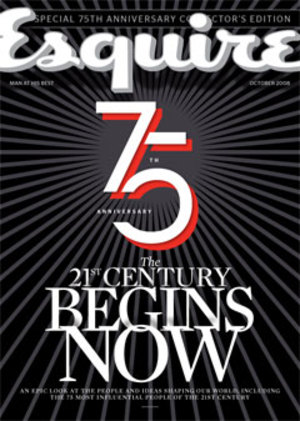 The 75 Most Influential People of the 21st Century
The 75 Most Influential People of the 21st Century
Deng Xiaoping: Chinese Communist leader, creator of modern China, dead
by Thomas P.M. Barnett
Esquire, October 2008, p. 146.
The 21st century will not belong to one region, much less one superpower. It will belong to the entire planet — a world made interdependent for the first time in human history. What drives all that connectivity is demand for a better life, and the one man most responsible for unleashing all that desire was Deng Xiaoping. You want to know why the price of just about everything in your world seems set by China? He is the guy to blame.
Five simple words said to have been spoken by Deng in 1979 got this party started: "To get rich is glorious." America might have gotten a big head start — 11 score and 12 years ago — with its unbridled "pursuit of happiness," but Deng's legendary formulation is how the rest of humanity will actually catch up. Between these two historic phrases, the world spent untold blood and treasure trying to come up with the magic formula for national economic success. But when China cast its vote for wealth creation through individual empowerment, all such history — as Francis Fukuyama famously wrote — essentially ended.
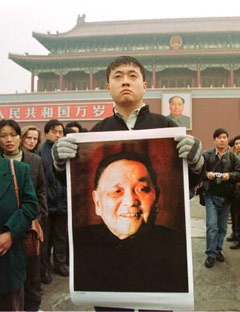
Because of Deng, globalization is no longer a choice, but a condition. Mikhail Gorbachev, celebrated for ending the cold war, closed the door on the 20th century through his miscalculations. By pursuing political reform before economic reform, he inadvertently dissolved the Soviet empire. Deng chose wisely, pursuing economic reform before political liberalization, and, in the farthest-reaching act of the 20th century, catapulted America's most precious gift to humanity — our American system-cum-globalization — into worldwide majority status.
None of this was preordained.
Deng Xiaoping survived the Long March, World War II, China's civil war, and multiple attempts by Mao Tse-tung himself to destroy him during the Cultural Revolution.
But when he survived Mao and achieved power in the early 1980s, Deng did the unthinkable: He dismantled Mao's dysfunctional socialist model, repudiating Marx without having to say so.
And now, the more Deng's system evolves, the more his legacy resembles that of Alexander Hamilton, a quintessentially 18th-century man whose greatest influence was felt in the 19th century with America's stunning rise.
Of course, to some, Deng Xiaoping will always remain the butcher of Tiananmen, but frankly, that's giving in to the fallacy that political freedom comes before economic freedom, when history says otherwise. By setting China on its long march up Abraham Maslow's hierarchy of needs, Deng transformed America's liberal trade order into a truly global phenomenon, making him the closest thing the world has to a "father of globalization."
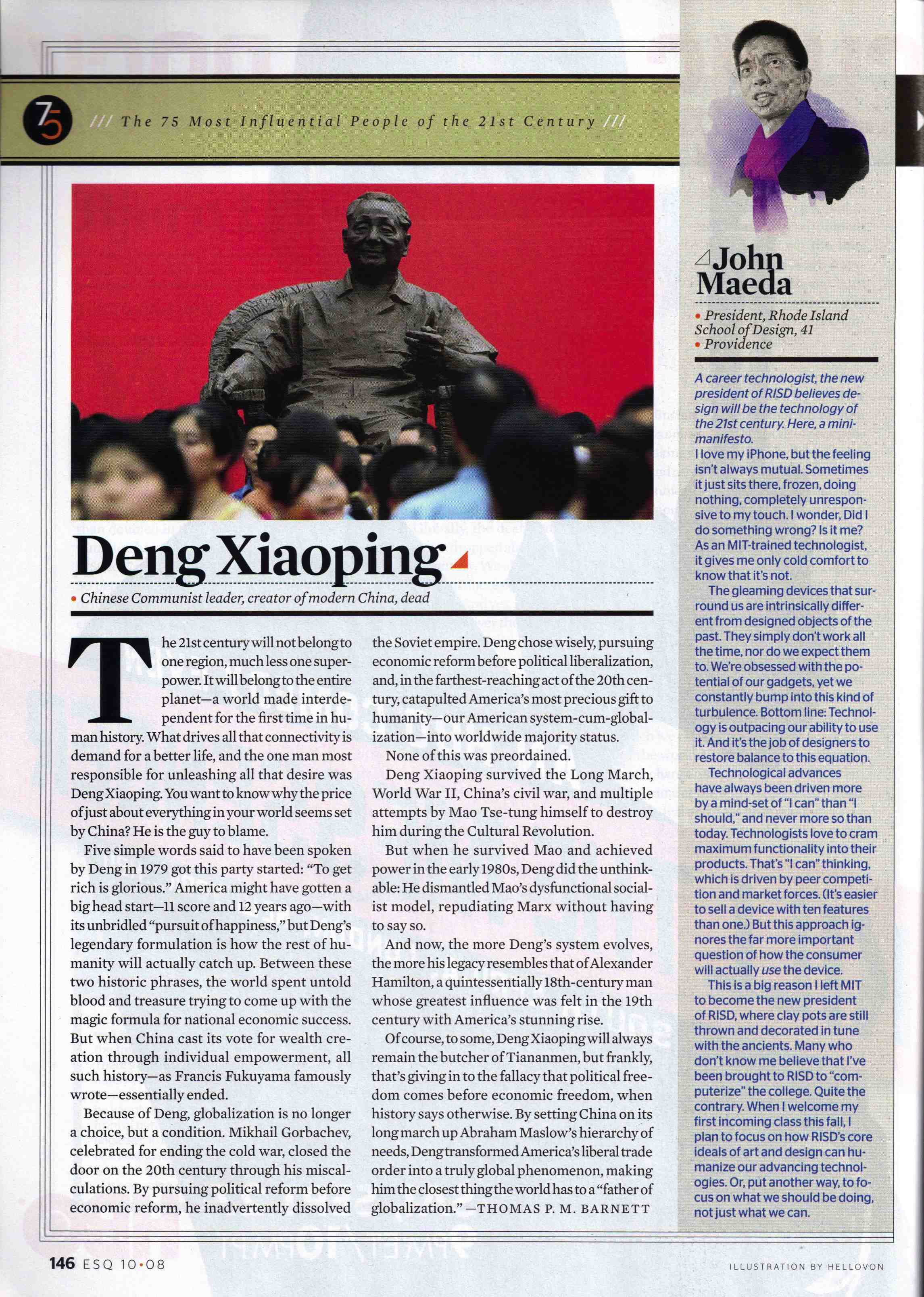
Hassan Nasrallah: Leader of Hezbollah, 48 * Lebanon
by Thomas P.M. Barnett
Esquire, October 2008, p. 130.
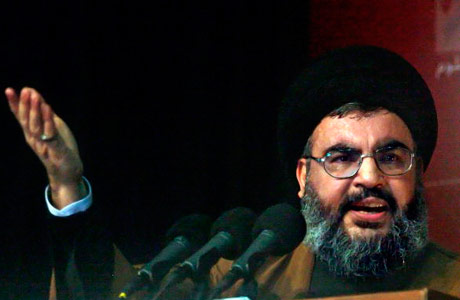
Most terrorist movements go one of two ways: They either fall apart after the top leaders are captured or killed, or they are successfully drawn into the political process and ultimately assimilated by the ruling political forces. Hezbollah's rise within Lebanon increasingly looks like the latter, except it is Lebanon's splintered political system that is being assimilated into Hezbollah's radical Islamic agenda rather than the other way around. Now in control of close to a dozen ministries and capable of forcing the installation of its preferred president (a feat Hezbollah pulled off this summer), this Shiite militia -- backed extensively by Iran -- has become Lebanon's de facto ruling party.
Forty-eight-year-old Hassan Nasrallah, Hezbollah's charismatic secretary-general since 1992, is part Yasir Arafat (he earned his stripes as a guerrilla commander fighting Israel's occupation in the 1980s) and part Ayatollah Khomeini (then spent years abroad burnishing his meager religious street cred and honing his skill for mob-igniting fiery sermons). And, oh, part Huey Long, because he has proved that he can deliver services to a desperate people that the government couldn't or wouldn't. Israel long ago decided that it can't live with him (attempting to assassinate him just like his predecessor) but eventually may come to the conclusion -- along with Washington -- that it can't live without him.
Nasrallah, who currently holds no public office, wants to rule Lebanon openly, but with Shiites constituting roughly a third of the population, his only route to Supreme Leadership replicates Iran's long-standing strategy of emphasizing a staunchly anti-Israeli/U. S. front. In this quest, Nasrallah has succeeded brilliantly, presiding over both Israel's embarrassing withdrawal from Lebanon in 2000 and its failed military effort to reduce Hezbollah's southern state-within-a-state in the summer of 2006, yielding a 34-day war that shell-shocked Beirut's fragile ruling coalition, not to mention the world.
With Israel staring at two unthinkable long-term scenarios (South African-style apartheid rule over a soon-to-be majority Muslim population in Palestine and a nuclear Iran), the diplomatic race may soon be on to capture Nasrallah's support for the mythical two-state solution in exchange for Western acceptance of Hezbollah's achievement of clear rule in Lebanon. In effect, banking on the notion that Nasrallah is more a power-hungry nationalist than he is Tehran's ideological puppet.
The United States helped turbocharge the Middle East's ongoing Shiite revival by clumsily creating the first modern Arab Shiite-dominated state in post-Saddam Iraq. In a "one man, one vote" world, that means learning to live with the likes -- and dislikes -- of Hassan Nasrallah.
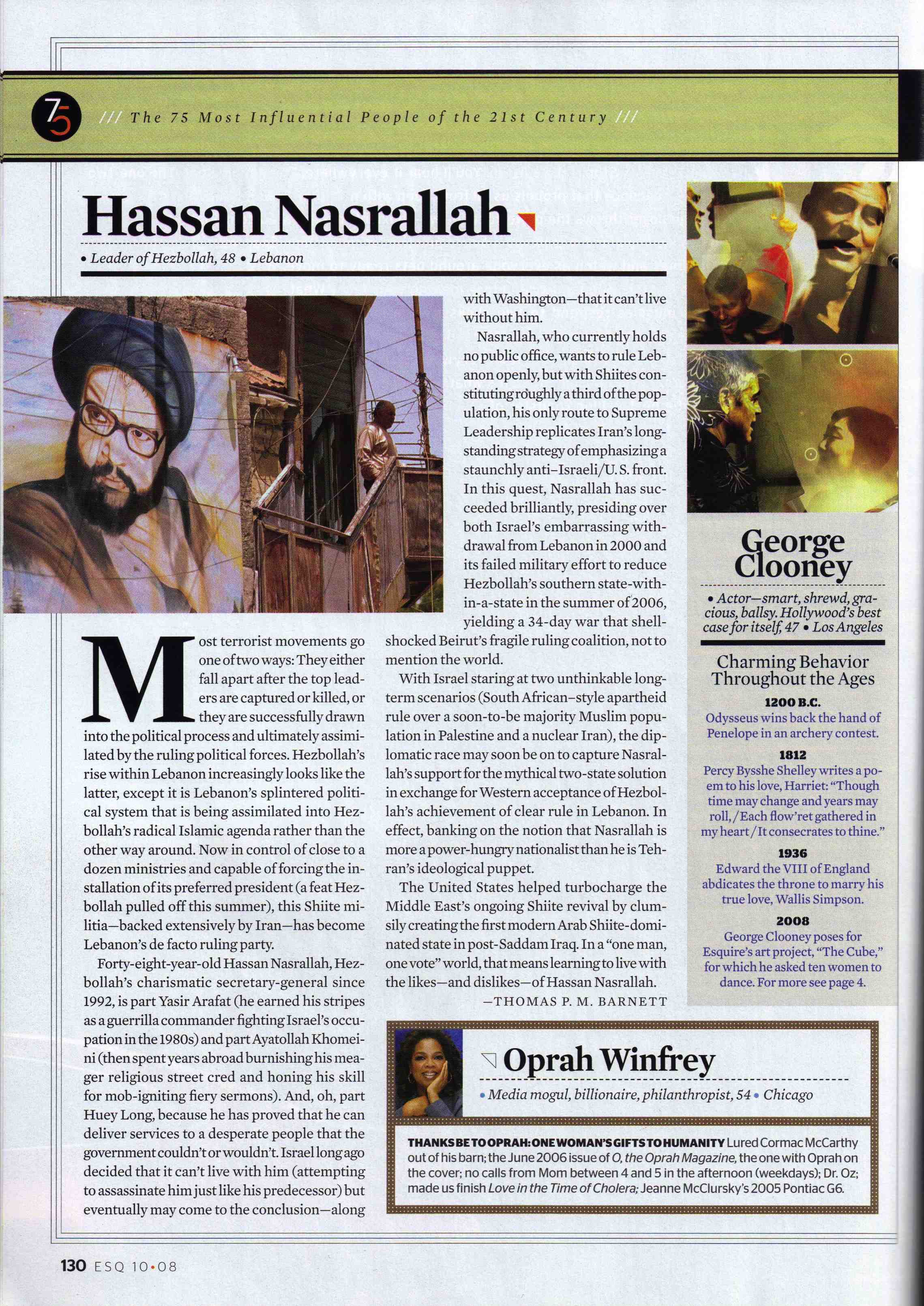
Meghan O'Sullivan: Former national-security advisor; foreign-policy realist, 39 * Cambridge, Massachusetts
by Thomas P.M. Barnett
Esquire, October 2008, p. 146.
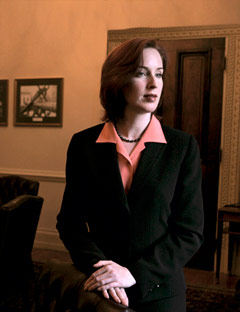
She has--by the ripe old age of 39--racked up more history-making national-security policy stints than anyone under 40 you can name. Now safely ensconced at Harvard after surviving genuine dangers early on in Baghdad (the "mistakes were made," tragically incompetent first year) and then braving Washington's hostile political climate during George Bush's worst years in this long war (she co-led the White House review that birthed the surge strategy), she is both celebrated and vilified, but clearly credentialed.
Neither ideologue nor naive, O'Sullivan is that most annoying of D. C. creatures--the pragmatic centrist, whose biggest handicaps seem to be her good looks (she once modeled) and her insistence on taking the long-term view. Oh, and she's nuanced, arguing for things like engaging Iran and avoiding official labels like "rogue regimes," two views that still render her suspect among the neocons.
Not surprisingly, both O'Sullivan's admirers and detractors can only see her moving up the food chain in coming years. Good indicator? General David Petraeus asked the White House to send her back to Baghdad in the summer of 2007. The question "going forward" (which is her pet phrase, revealing a durable optimism that endeared her to Bush) isn't, Was she there for the screwups? Because she was there for the screwups. The question history will ask is, Was she there for the repair? Because that's when her leadership potential began to emerge. "Bush-bot" to some, O'Sullivan can only rise in stature as Iraq heads into the late innings, continuing to stabilize.
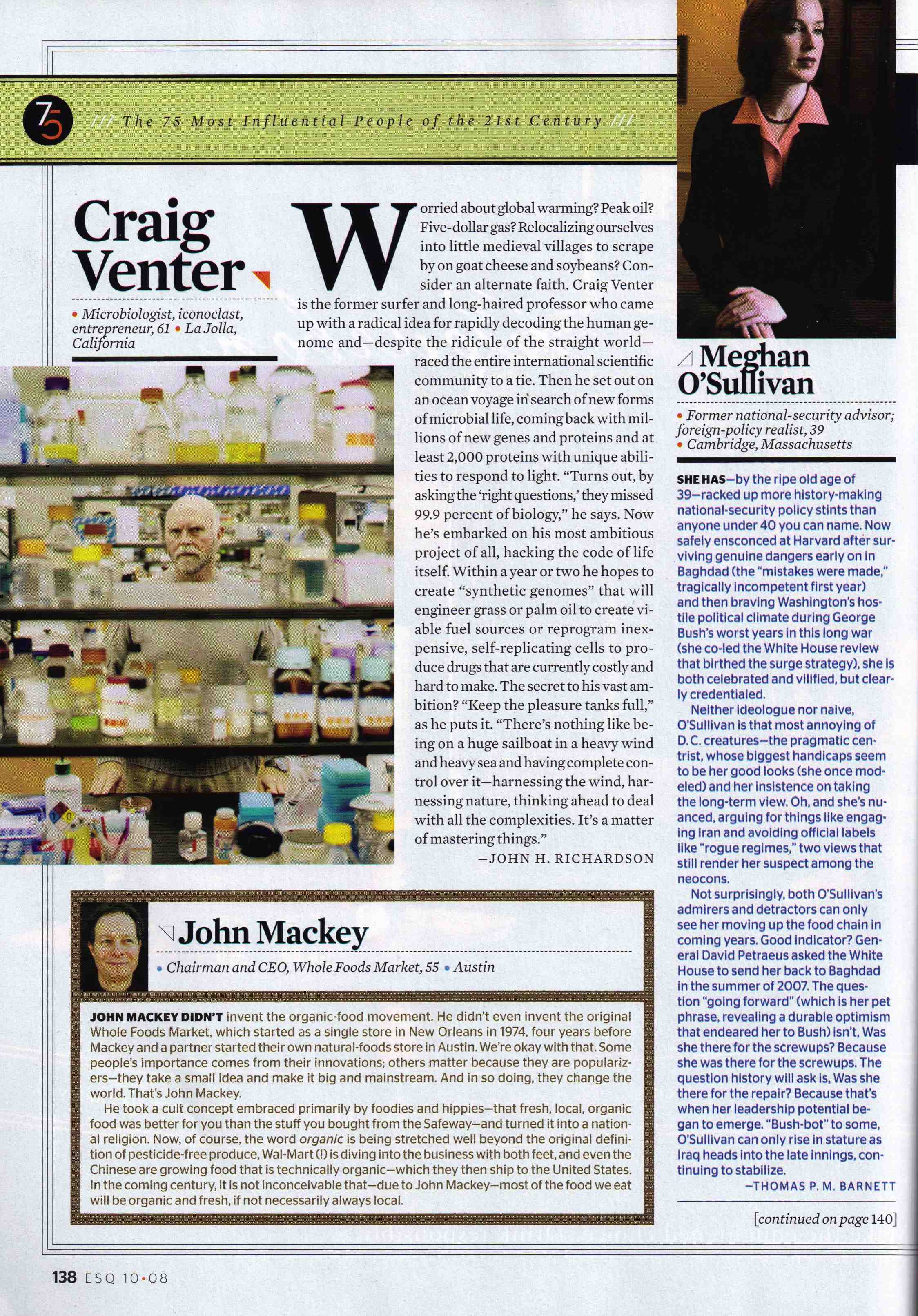
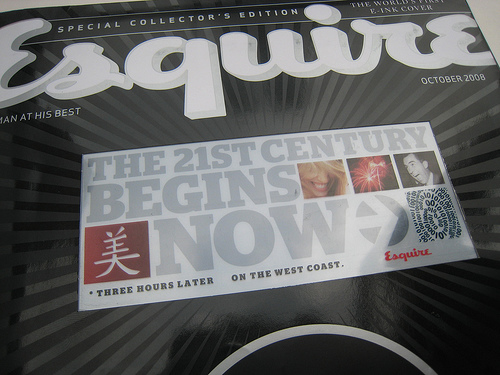










Reader Comments